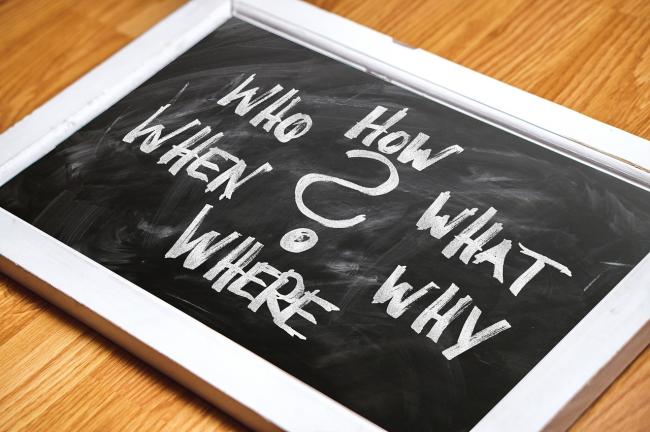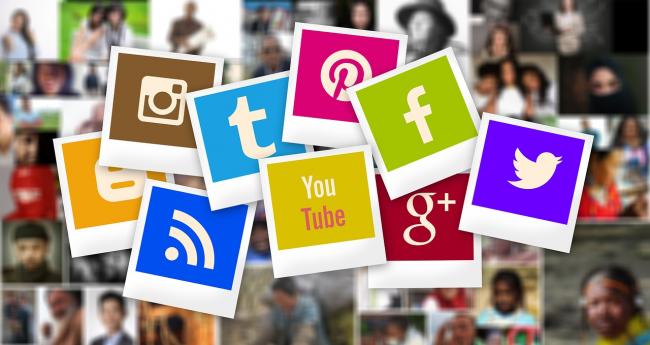Become a more confident user and creator of information.
Image

|
Creating Information Remember that research is not simply about reproducing information, but about creating something new. No one else shares your exact experiences, values, or perspective. Let your uniqueness shine through in the content you create. |
Start This Playlist |
Image

|
Determining Credibility One thing to look for when trying to determine if a resource is credible is the authority of the person/people who created that resource. Look not only to see how much authority you would ascribe to the information creator, but also to determine the context and derivation of that authority. |
Start This Playlist |
Image

|
Developing Research Strategies Just getting started with research? The resources in this playlist will help you learn how to avoid research anxiety, how to choose a topic, identify and use appropriate sources, and find help when you need it. |
Start This Playlist |
Image

|
Evaluating Web Content It can be a challenge to figure out which content to trust. This guide offers tips for evaluating the quality of content on the Web. The Web is a rich environment of Web pages, blogs, wikis, social networking sites, free research services, media types and more. |
Start This Playlist |
Image
![The Yellow Press, by L.M. Glackens. Illustration shows William Randolph Hearst as a jester tossing newspapers with headlines such as "Appeals to Passion, Venom, Sensationalism, Attacks on Honest Officials, Strife, Distorted News, Personal Grievance, [and] Misrepresentation" to a crowd of eager readers, among them an anarchist assassinating a politician speaking from a platform draped with American flags; on the left, men labeled "Man who buys the comic supplement for the kids, Businessman, Gullible Reformer](/sites/default/files/styles/max_650x650/public/2019-07/The_Yellow_Press.jpg?itok=OnoQa0qc)
|
Fake News The creation and distribution of fake and misleading news has proliferated, and has had a profound impact on recent events. It is imperative that we recognize and repudiate such misinformation. |
Start This Playlist |
Image

|
Finding Jobs No matter what job you are looking for, most employers would like their employees to be able to research effectively, think critically, work collaboratively, and report results accurately and succinctly. The curated resources here will help you understand what employers are looking for. |
Start This Playlist |
Image

|
Information Formats Are Meaningful People create information for a variety of purposes. There is no “one size fits all” format for their creations. Creators choose a format that will make sense to those receiving the information. Each type of source may have value to you—depending on the circumstances. For example, to get personal updates on your friends isn’t going to work for the research you’ve been assigned by one of your professors. These resources will help you to think more deeply about information formats and their best uses. |
Start This Playlist |
Image

|
International Students If you are coming to the University at Albany Libraries from another country, learning the expectations of academic research at an American university might feel overwhelming. The resources on this list will help you get started. |
Start This Playlist |
Image

|
Practicing Academic Integrity Familiarize yourself with the standards of academic integrity at UAlbany and beyond. |
Start This Playlist |
Image

|
Resources for Faculty This playlist has been compiled by the libraries' Information Literacy department to provide key resources about information literacy to get you started. If you have any questions or would like recommendations for further resources, please feel free to contact us. |
Start This Playlist |
Image

|
Science Information Literacy Science Information Literacy or Information Literacy in the Sciences refers to understanding and being comfortable using different sources of information in the sciences, both academic and popular, in various formats including print and online. |
Start This Playlist |
Image

|
Searching for Information The search for information can take many paths. Learn about recommended strategies and resources that can help you along the way. |
Start This Playlist |
| Working with Primary and Secondary Sources Another way sources might be categorized are primary versus secondary (and even tertiary). If you want to check your understanding of these terms, take a look at one of these resources. |
Start This Playlist | |
Image

|
Working with Scholarly Sources Your professor may have assigned a research project, but put some limitations on the types of sources you can use. You may have been told to use articles, but only scholarly articles. Articles can come from a variety of types of sources. How can you tell the difference? This guide helps you to distinguish articles from scholarly, trade, and popular sources. |
Start This Playlist |